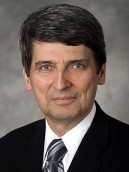
While many specialties are being divided into smaller entities, plastic surgery expands as both a surgical and a medical clinical specialty developing devices, cosmeceuticals, and noninvasive techniques. Years ago, during my general surgery residency, one of my mentors, a very senior general surgeon, defined plastic surgery as “general surgery done well.” For a long time I could not decide whether or not he intended this as a joke. Finally, I concluded that there was a serious message in his humor with respect to our specialty of plastic surgery. I take the metaphor of superfruits––superfruits are defined by their unusually high nutritional value, high antioxidant capacity, and high consumer appeal; by extrapolating this to a specialty with explosive growth of basic and clinical science behind it, tremendous capacity to turn people’s life around, and high consumers respect, we can assert that plastic surgery becomes a superspecialty!
The content of this volume exemplifies “the power” of modern plastic surgery. The rich and diverse experience of the group of plastic surgery leaders who have collaborated to make it possible to share their technical mastery and vision of key recent advances allowed us to prepare a volume of Clinics in Plastic Surgery devoted to “Technical Advances in Plastic Surgery.” In addition, considering the growth and increasing complexity of technology, invasive and noninvasive techniques, publications, journals and handbooks, electronic materials, and workshops, we emphasize that the teaching and mastering of plastic surgery cannot be effective anymore without an appropriate infrastructure that is dedicated to modern education. This challenge was taken very seriously at my alma mater. At UC San Diego Center for the Future of Surgery, dedicated solely to education and telemedicine, surgeons and scientists are advancing surgical techniques by investigating, developing, testing, and teaching procedures that will revolutionize the field of surgery and foster multispecialty interactions as new developments are taken from the Teaching Lab to the patient ( Fig. 1 ).







